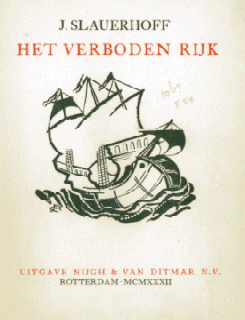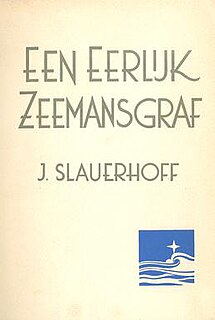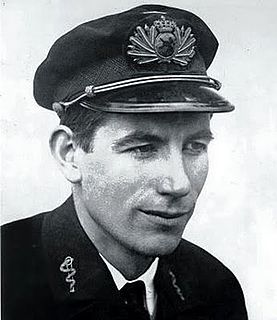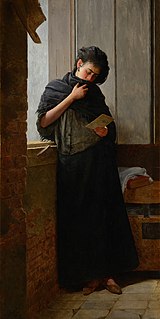Peter Verhelst is a Belgian Flemish novelist, poet and dramatist. He won the Ferdinand Bordewijk Prijs for Tongkat. His latest novel is a political thriller, Zwerm.

Charles Edgar du Perron, more commonly known as E. du Perron, was a famous and influential Dutch poet and author of Indo-European descent. Best known for his literary acclaimed masterpiece Land van herkomst of 1935. Together with Menno ter Braak and Maurice Roelants he founded the short-lived, but influential literary magazine Forum in 1932.

Ida Gerhardt was a classicist and Dutch poet of a post-symbolist tradition.
Clem Schouwenaars was a Belgian writer. He grew up in a Roman Catholic family. His youth was not a happy one. Two of his brothers and one of his sisters died young, and his only remaining sister was killed during a bombardment in 1943. His mother died in 1960, and some time later his father committed suicide.

Gerrit Jan Komrij was a Dutch poet, novelist, translator, critic, polemic journalist and playwright. He rose to prominence in the early 1970s writing poetry that sharply contrasted with the free-form poetry of his contemporaries. He acquired a reputation for his prose in the late 1970s, writing acerbic essays and columns often critical of writers, television programs, and politicians. As a literary critic and especially as an anthologist he had a formative influence on Dutch literature: his 1979 anthology of Dutch poetry of the 19th and 20th centuries reformed the canon, and was followed by anthologies of Dutch poetry of the 17th and 18th centuries, of Afrikaans poetry, and of children's poetry. Those anthologies and a steady stream of prose and poetry publications solidified his reputation as one of the country's leading writers and critics; he was awarded the highest literary awards including the P. C. Hooft Award (1993), and from 2000 to 2004 he was the Dutch Dichter des Vaderlands. Komrij died in 2012 at age 68.
Jacobus Marinus Hamelink, better known as Jacques Hamelink, is a Dutch poet, novelist, and literary critic, who is best known for his early short story collections such as Het plantaardig bewind and De rudimentaire mens. Later on in his career he gradually abandoned his pessimistic prose and chose to write more and more poetry full of historical and literary references, while at the same time not neglecting the sound value of his verse. These two factors have gradually alienated him from an initially enthusiastic audience.

Herman Rudolf "Rudy" Kousbroek was a Dutch poet, translator, writer and first of all essayist. He was a prominent figure in Dutch cultural life between 1950 and 2010 and one of the most outspoken atheists in the Netherlands. In 1975 he was awarded the P.C. Hooft Prize for his essays.

Adriaan Roland Holst was a Dutch writer, nicknamed the "Prince of Dutch Poets". He was the second winner, in 1948, of the Constantijn Huygens Prize. He was nominated for the Nobel Prize in Literature.
De Nederlandse poëzie van de 19de en 20ste eeuw in 1000 en enige gedichten is a 1979 anthology of Dutch poetry. Compiled by poet and critic Gerrit Komrij and published by Bert Bakker, it quickly became a hotly discussed book and a yardstick for canonicity, nicknamed "The Bible of Dutch poetry". Controversy over Komrij's selection erupted almost immediately and even led to a lawsuit ; it is generally agreed, though, that the anthology has had significant influence on the canon of Dutch poetry.

Het verboden rijk is a novel by Dutch author J. Slauerhoff (1898–1936). First published in 1931, the novel follows two narratives simultaneously—that of the Portuguese poet Luís de Camões, and that of a 20th-century Irishman, a radio operator and sailor. A sequel, Het leven op aarde, was published in 1933; a third book was planned but never finished.
Terug tot Ina Damman is a novel by Dutch author Simon Vestdijk. First published in 1934, it is one of Vestdijk's most popular novels. It is the third installment in the Anton Wachter cycle, a series of eight novels whose protagonist is Anton Wachter, the author's alter ego. His entire existence as an artist, Vestdijk later wrote Theun de Vries, originates in his "Ina Damman experience".

Bartelomeus Frederik Maria Droog is a Dutch poet, anthologist and researcher.

Eldorado is a volume of poetry by Dutch poet J. Slauerhoff. First published in 1928, the collection gathers poems that speak mostly of sailors' and pirates' lives and desires. The poems contain familiar themes for Slauerhoff: a sailor's life, the impossibility of life on land or in society, the myth of the pirate and the Flying Dutchman.

Serenade is a volume of poetry by Dutch poet J. Slauerhoff. First published in 1930, the poems in the collection are mostly personal and lyric poems. Critics have noted that some of the poems are inspired by 19th-century French poetry and are sexual in nature, and they have responded in various ways, with assessments ranging from "childish" to "pure lyric". The themes of desperation and the desire to escape bourgeois life, common in Slauerhoff's other poetry, are found in Serenade as well, and two of the poems were used in an obituary for the poet, who died eight years after the publication of this volume.

Oost-Azië is a volume of poetry by Dutch poet J. Slauerhoff. First published in 1928 under the pseudonym John Ravenswood, the collection contains poems whose theme is the Far East, a part of the globe Slauerhoff knew from his career as a sailor.

Fleurs de Marécage is a collection of French poems by Dutch poet J. Slauerhoff, first published in 1929. Some are poems originally written in French, others are French translations by the poet of his originally Dutch poems.

Saturnus is a volume of poetry by Dutch poet J. Slauerhoff. First published in 1930, the collection gathers the poems earlier published in Clair-Obscur, published by Slauerhoff in 1927 without his editorial oversight, with some additional poems.

Een eerlijk zeemansgraf is the last volume of poetry published by Dutch poet J. Slauerhoff before his death.




















